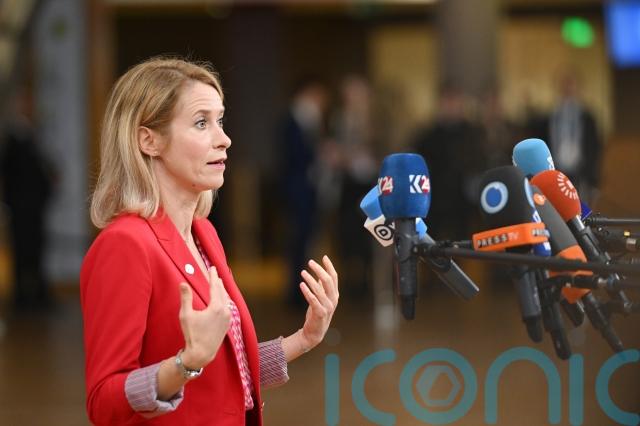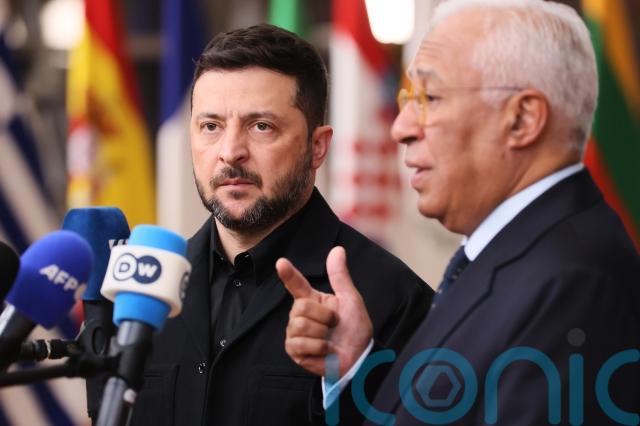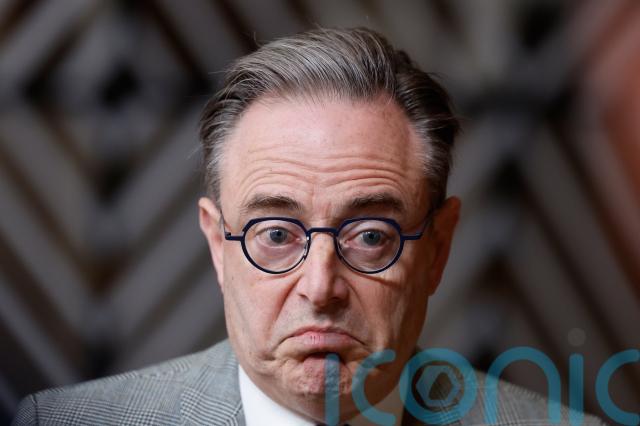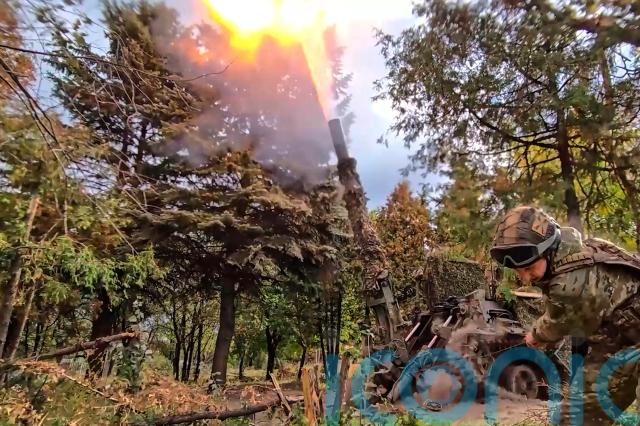
The European Union has agreed on a new raft of sanctions against Russia, targeting its shadow fleet of oil tankers and banning its imports of liquefied natural gas, the Danish EU presidency has announced.
“Today is a good day for Europe and Ukraine,” Danish foreign minister Lars Lokke Rasmussen said, as EU leaders gather for a summit in Brussels.
He said that the new sanctions “will introduce new and comprehensive measures on oil and gas, the shadow fleet and Russia’s financial sector”.
EU Member States have approved our 19th package of sanctions against Russia.
We’re keeping the pressure high on the aggressor.
For the first time we are hitting Russia’s gas sector – the heart of its war economy.
We will not relent until the people of Ukraine have a just and… https://t.co/HQTknzy2uC
— Ursula von der Leyen (@vonderleyen) October 23, 2025
The move comes a day after US president Donald Trump’s administration announced new sanctions against Russia’s oil industry that are aimed at moving Russian leader Vladimir Putin to the negotiating table and ending Moscow’s war on Ukraine.
Energy revenue is the linchpin of Russia’s economy, allowing Mr Putin to pour money into the armed forces without worsening inflation for everyday people and avoiding a currency collapse.
The new EU measures took almost a month to decide. The 27-nation bloc has already slapped 18 packages of sanctions against Russia over the war, but reaching a final agreement on who and what to target can take weeks.
The sanctions agreement was sealed at a Thursday morning meeting of EU ambassadors, just a few hours before Ukrainian president Volodymyr Zelensky joins his European counterparts for the one-day summit, as they press for a ceasefire to halt almost four years of fighting.
The summit comes after Mr Trump said that his plan for a swift meeting with Mr Putin was on hold because he didn’t want it to be a “waste of time”.
It was yet another twist in Mr Trump’s stop-and-go effort to end the war.

The leaders are also eager for any progress on Mr Trump’s Gaza peace plan, and will debate ways to keep the 27-nation bloc involved in proceedings.
The EU is the world’s biggest provider of aid to Palestinians but has little leverage over Israel – in part because European nations are divided over how to handle the conflict – and it has struggled to play a role of consequence.
Its role in the war in Ukraine is clearer, and the summit takes place as Russian armed forces strike at the conflict-torn country’s power grid just as the weather starts to turn colder.
Earlier this week, Ukraine’s strongest European backers who form part of the “coalition of the willing” said they opposed any push to make Ukraine surrender land captured by Russian forces in return for peace, as Mr Trump most recently has suggested.
The UK will host a meeting of the members of that coalition of more than 30 countries on Friday.
On the EU side, leaders intend to push forward with plans to use billions of dollars in frozen Russian assets to help fund Ukraine’s war efforts, despite some misgivings about the consequences of such a step.

The biggest tranche of frozen assets – some 225 billion dollars’ worth (£168 billion) – are held in Belgium, and the Belgian government has been reluctant to take any risks on using the money without firm guarantees from its European partners.
Belgian prime minister Bart De Wever insisted that his European partners must share the risk of using the frozen Russian assets.
“If we want to give them to Ukraine, we have to do it all together,” Mr De Wever told reporters as he arrived for a summit with his EU counterparts in Brussels.
“If not, Russian retaliation might only hit Belgium. That’s not very reasonable.
“We are a small country, and retaliation can be very hard. They might confiscate all kinds of monies of Western banks in Russia, confiscate the European owned companies in Russia.”
The European Commission has described the plan as a “reparation loan.”

Ukraine’s budget and military needs for 2026 and 2027 are estimated to total around 153 billion dollars (£114 billion).
The EU leaders are also likely to sign off on a new “road map” to prepare Europe to defend itself against a Russian attack by the end of the decade.
Top officials believe that Russian could be ready to take aim at another European country within three-to-five years.
– Russia brushes off the sanctions
Russian Foreign Ministry spokeswoman Maria Zakharova described the new US sanctions as “entirely counterproductive, including in terms of signalling in favour or achieving a meaningful negotiated solution to the Ukrainian conflict”.
“If the current US administration follows the example of its predecessors, who attempted to coerce or force Russia into sacrificing its national interests through unlawful sanctions, the result will be exactly the same — disastrous from a domestic political standpoint and detrimental to the stability of the global economy,” Ms Zakharova said.

State-run and pro-Kremlin Russian media mostly shrugged at the news.
“Pressure or no pressure, it won’t make things any sweeter for Zelensky. And what’s more, it won’t bring peace any closer,” Komsomolskaya Pravda, a popular pro-Kremlin tabloid, said.
Russian state news agency Ria Novosti said in a column that the new sanctions were “painful, as usual, but not deadly. Also as usual”.
– Drone strikes continue overnight
The two sides continued to pummel each other with strikes overnight.
In a village in Ukraine’s north-eastern Kharkiv region, Russia conducted a so-called double-tap drone strike, hitting the same place a second time when first responders arrived at the scene of the first strike, regional head Oleh Syniehubov said.
One emergency worker was killed and five of his colleagues were injured, Mr Syniehubov said.
Russian drones also attacked three districts of Kyiv, injuring eight people, according to the city’s prosecutor’s office.
The Russian Defence Ministry, meanwhile, reported intercepting and destroying 139 Ukrainian drones over Russian regions and the annexed Crimean peninsula overnight.
It did not comment on unconfirmed reports that Ukrainian drones hit another oil refinery and an unspecified energy facility.
Subscribe or register today to discover more from DonegalLive.ie
Buy the e-paper of the Donegal Democrat, Donegal People's Press, Donegal Post and Inish Times here for instant access to Donegal's premier news titles.
Keep up with the latest news from Donegal with our daily newsletter featuring the most important stories of the day delivered to your inbox every evening at 5pm.